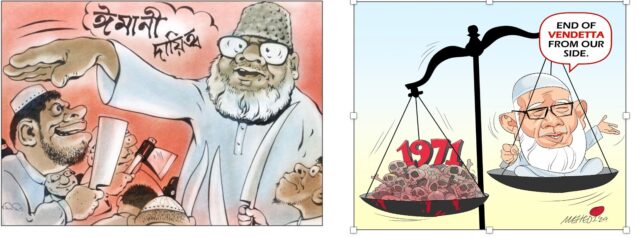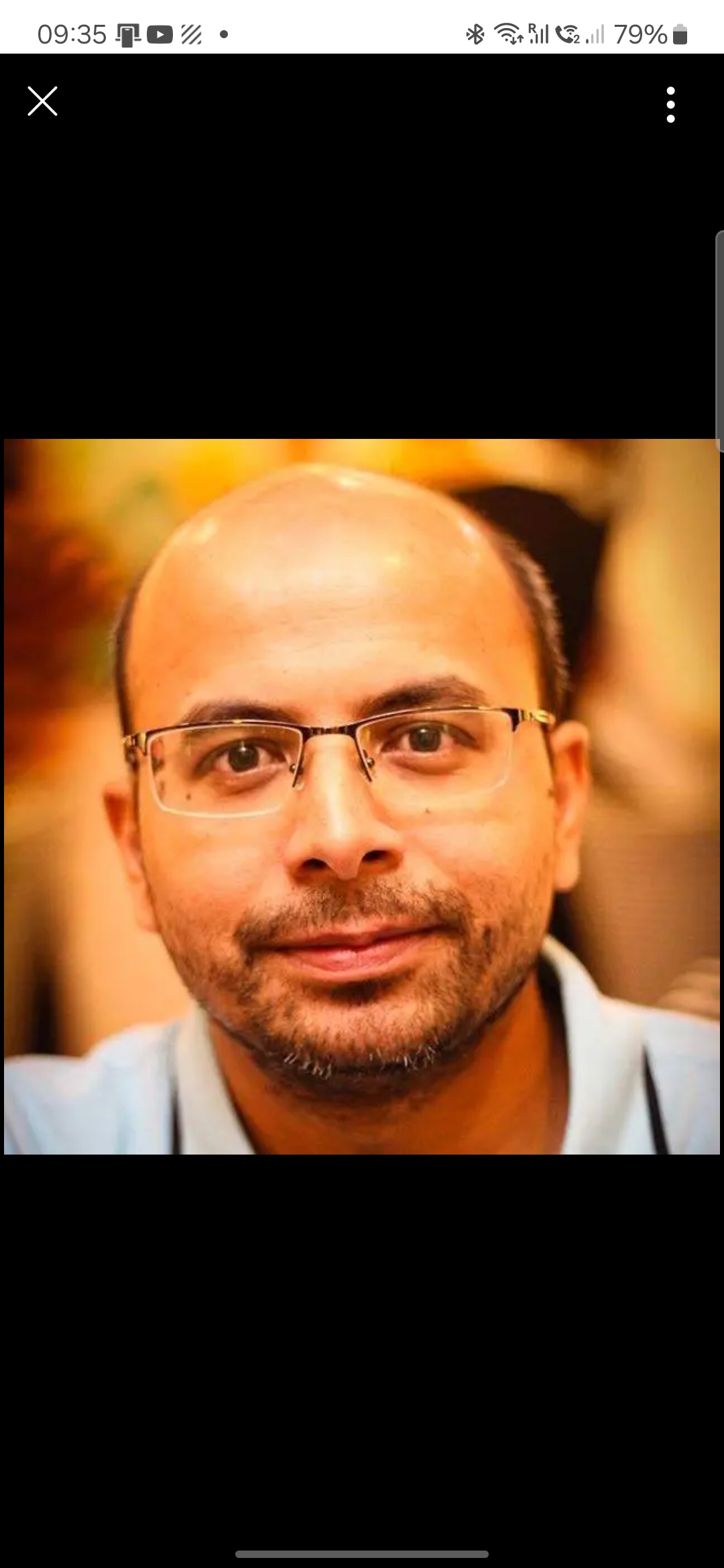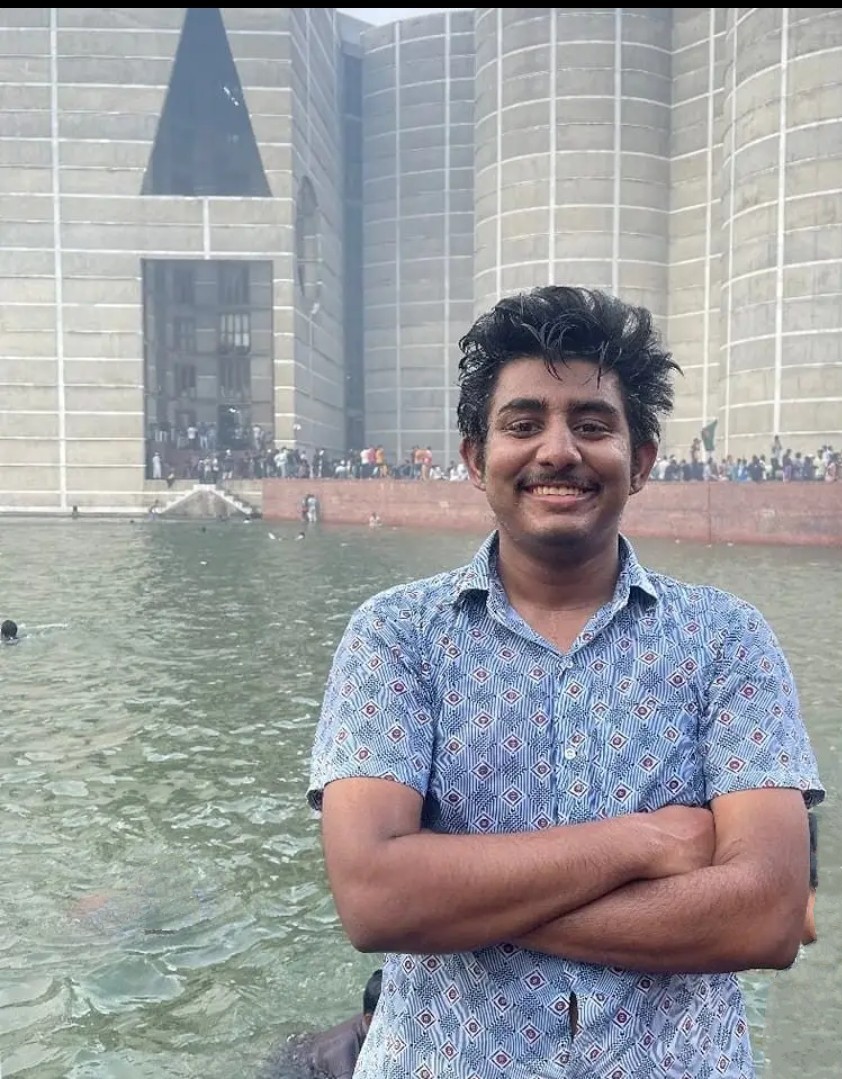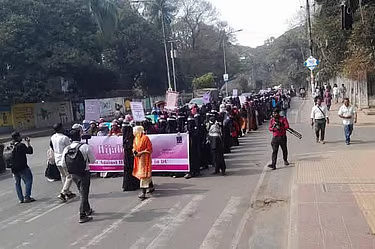By: Dr Mokarram Hossain
Many from the new generation in Bangladesh might not know the cartoonist Shishir Bhattacharjee. Recently, BNP (acting) Chairperson Tarique Rahman reminded us by sharing a cartoon from Shishir. This same cartoonist, Shishir Babu, used to publish cartoons mocking Tarique Rahman, Khaleda Zia, and Jamaat leaders almost daily in the Daily Prothom Alo during the BNP-Jamaat coalition government. It is not known publicly that Mr Bhattacharjee faced any trouble or threats because of this caricature during the then BNP-Jamaat govt. Tarique Rahman primarily reminded us of the event of tolerant Bangladesh.
Shishir Babu has been in a kind of winter hibernation for the past 16 years. He has not drawn any single cartoons that go against the whim of the deposed dictatorship or would displease Hasina. One of the key elements of Shishir’s cartoons was ‘Islam-bashing.’ Islamic symbols like beards, caps (turbans), hijabs, and flags with crescent/moons and stars seemed to trigger Shishir Babu. He would mock and ridicule these whenever he had the chance. Even though 91% of the population in Bangladesh are Muslims, none made any voice against Mr Bhattacharjee for his caricatures.
But ridiculing any religious symbol is a form of cultivating hatred. For example, look at Shishir’s cartoon published in the Daily Prothom Alo in early 2010 (on the left side). A group of bearded and capped youths is seen attacking others with machetes, while an elderly man with beard and cap is blessing them. What does this cartoon imply? That all terrorist acts in the country are caused by bearded and capped ‘mullahs.’
Leaving 2010 aside, after 15 years, we see the same old cultivation of hatred and Islam-bashing again. In a cartoon drawn by Mehedi published in the Daily New Age newspaper (on the right side), you see the 1971 genocide, and on the other side, a bearded and capped cleric. In a plain language, what does this cartoon imply? That all the killings in 1971 were the fault of those wearing beards and caps, isn’t it?
Despite Bangladesh being an overwhelmingly Muslim-majority country, its people have generally not expressed extremist views. This tolerance has allowed biased cartoonists like Shishir Bhattacharjee to continue their work without facing significant backlash. Shishir, who was outspoken against the government from 2001 to 2005, notably never criticized Sheikh Hasina’s regime over the past 16 years. This silence is significant given that Sheikh Hasina’s government has been accused of serious human rights violations, including kidnapping and killing political opponents, and, more recently, allegedly killing nearly a thousand people including one hundred children and injuring many more during a student-led uprising.
While the Bangladeshi Nation is striving to build a harmonious environment, vested individuals like Mehedi are reigniting division by publishing controversial cartoons. The role of satire and cartoons has always been to provoke thought, but it is also essential to consider their impact on social cohesion and inter-religious harmony. Figures like Shishir and Mehedi seem to practice a double standard, using old issues to destabilize the country rather than foster unity.
This raises a fundamental question: If certain religious or political figures can be satirized, why should others be exempt? This inconsistency highlights the need for a balanced approach to freedom of expression. There is a fine line between critique and hate speech. If cartoons promote stereotypes and hatred, they pose a legitimate threat to social harmony and community relations. It is crucial for media and artists to consider the broader societal impact of their work, particularly in a diverse and multi-religious society like Bangladesh.
In a country where 91% of the population are Muslims, should the cultivation of hatred be continued?
– Dr Mokarram Hossain is an UK-based Educationalist









